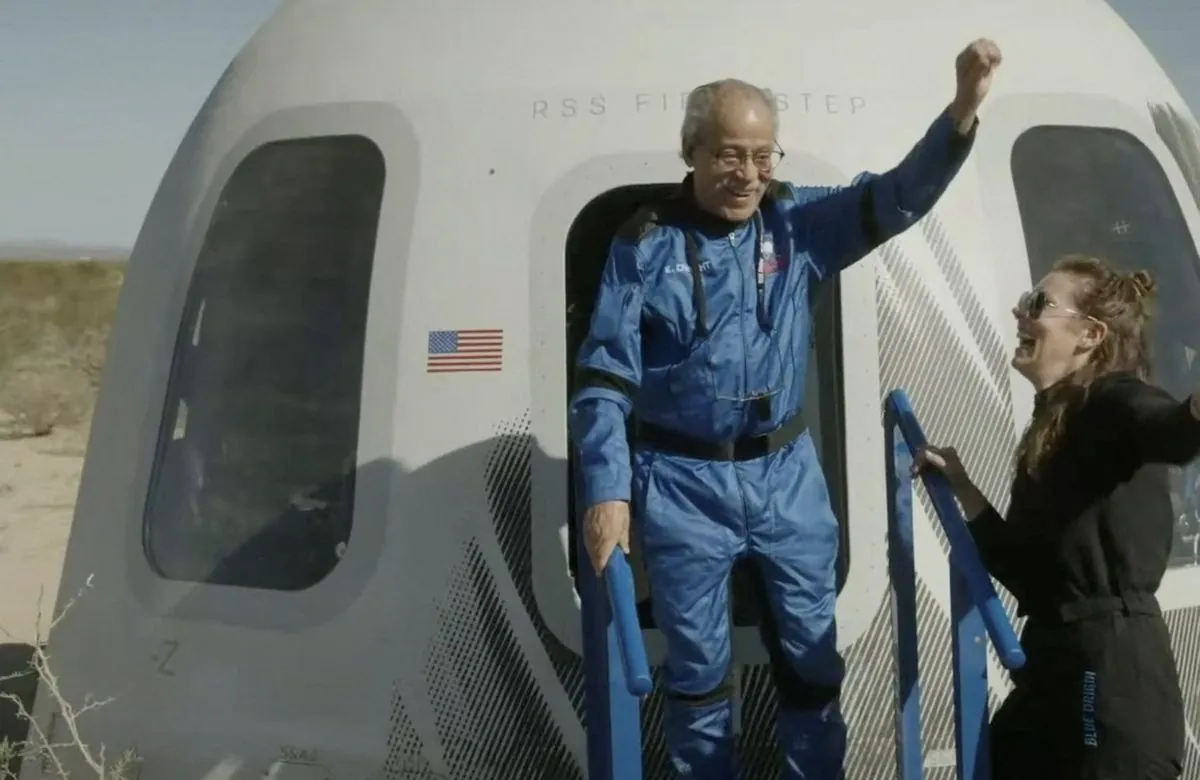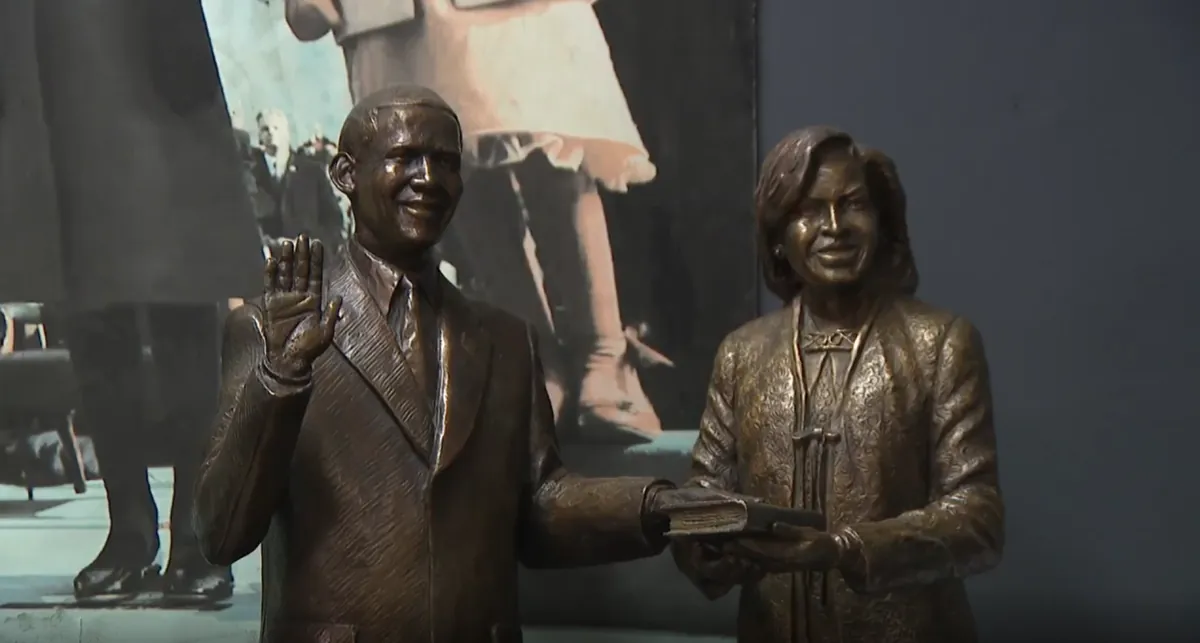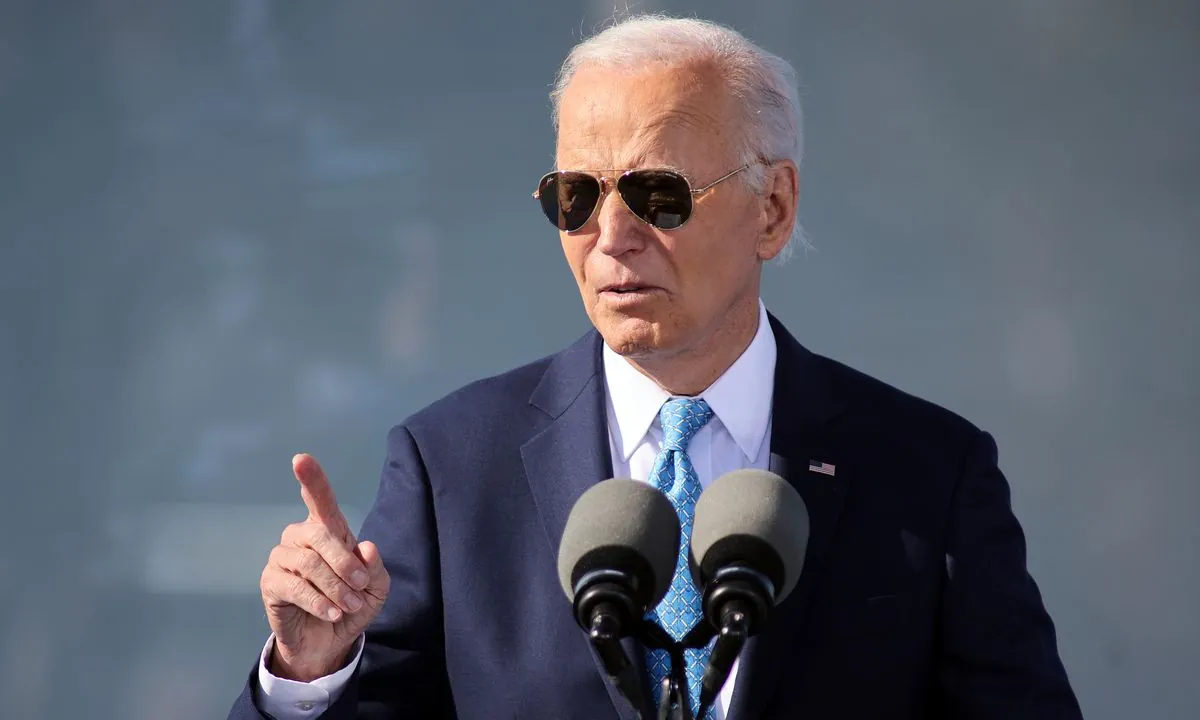From Astronaut Trainee to Space Tourist: Edward Dwight's 60-Year Journey
Edward Dwight, once selected as the first African American astronaut trainee in 1963, finally reached space at 90 with Blue Origin. His journey reflects the progress in racial equality in the U.S. space program.

In November 1963, Edward J. Dwight Jr. was a 30-year-old U.S. Air Force jet fighter pilot selected as the first African American for astronaut training. Sixty years later, at age 90, he finally achieved his dream of reaching space aboard Blue Origin's New Shepard capsule.
This remarkable journey spans the evolution of America's space program and civil rights movement. In the early 1960s, as the Space Race intensified, civil rights leaders persuaded President Kennedy to include Black Americans in the space program. Dwight's selection was a significant step, coming just a year after John Glenn became the first American to orbit Earth.
However, Dwight faced considerable challenges. Some senior Air Force officers, including Chuck Yeager, who broke the sound barrier in 1947, opposed his inclusion. Surprisingly, even some Tuskegee Airmen, the renowned African American pilots of World War II, expressed resentment.
"It was disappointing and so petty."
Despite these obstacles, Dwight's story gained international attention. A Washington Post article about him was widely circulated by NASA and the State Department to counter perceptions of racial prejudice in the U.S. space program.

After leaving the Air Force in 1966, Dwight embarked on a successful career as a sculptor and historian. He has created 128 public sculptures across the United States, including a statue of Frederick Douglass in Washington, D.C., and the Kunta Kinte-Alex Haley Memorial in Annapolis.
The landscape of space exploration has changed significantly since Dwight's initial selection. African Americans now routinely participate in the space program, with Charles F. Bolden Jr. serving as NASA Administrator from 2009 to 2017. The International Space Station, continuously occupied since 2000, symbolizes the progress made in international cooperation in space.
Dwight's recent suborbital flight with Blue Origin, crossing the Kármán line 100 km above Earth, marks a full-circle moment in his life. It not only fulfilled his personal dream but also highlighted the advancements in both space technology and social progress.
"Now, I feel vindicated and a sense of justice after various things — forces of darkness — were put in my way. Now, I've come full circle, and looking back, I opened the conversation about Black Americans in space. I helped put the issue on the table."
Dwight's story, from aspiring astronaut to space tourist, mirrors the broader narrative of African American inclusion in space exploration. It serves as a testament to perseverance and the ongoing journey towards equality in all fields of human endeavor.


































